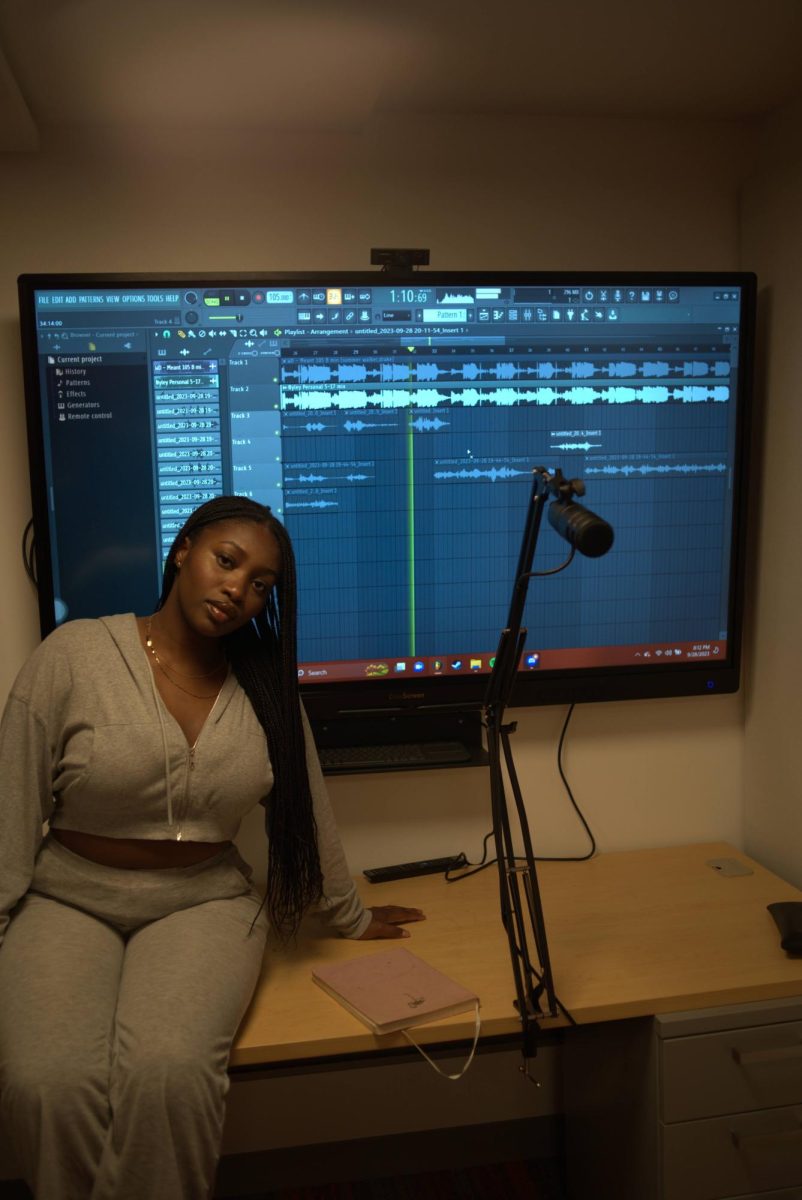On Saturday Feb. 24, the Black Healing, Joy and Justice Collective held its first-ever Black AF Conference (standing for “Black Artistic Freedom”). It was sponsored by the Center of Racial Justice and Youth Engaged Research, UMass College of Education and UMass Amherst Equity and Inclusion. The event was facilitated by Imani Wallace of the Black Healing, Joy and Justice Collective, a third-year PhD student of social justice education and W.E.B. Du Bois Center fellow.
The Black AF Conference was the second half of a two-part Black Artistic Freedom Weekend, the first of which was the W.E.B. Du Bois Poetry Slam Invitational held the previous day. Wallace, who had also facilitated the Slam, discussed the benefits of the conference and stated that ever since she applied to UMass, she had been planning to host an event about Black Artistic Freedom. She also expressed how spoken-word poetry, which was also a focus of the conference, could bring about social justice.
“The objectives of today were to bring together artists, educators and activists in order to think about what it means to have artistic freedom, to think about what it means to center Black bodies, Black voices, Black arts, especially here at a predominately white institution — UMass Amherst. There’s a very small percentage of Black students here on campus, and this conference has been a brainchild of mine…since I got accepted into this program. I talked about how my research is in the intersection of arts and activism, and I want to utilize my platform and my research in education in order to bring that to the forefront,” Wallace said.
“As a spoken word artist, I am always thinking about how spoken word has such transformative properties,” she continued.
The conference began with a rendition of the Black National Anthem, “Lift Every Voice and Sing,” performed by local gospel singer Alexa Gray. After opening remarks were given by Dr. Justin Coles, associate professor of social justice education at UMass, the events were opened to the attendees. Two events at a time — one on the “Activist Track” and one on either the “Artist Track” or “Educator Track” — were held.
The first “Artist Track” event, a panel discussion on “Art, Activism, and Allyship in Education” was led by Lu Vincent, a teaching assistant with a PhD in education and social justice from UMass, Dana Altshuler, a PhD student at UMass and teacher and Irene Urshomirsky, an ethnic studies English teacher at Holyoke High School. It was moderated by Kyle Lawrence, education director for the Academy of Music Theater in Northampton. The panelists discussed their experiences as white educators who collaborated with students of racial minorities in the classroom.
Urshomirsky, a UMass alumna explained how her studies at UMass had shaped her, and what she would suggest to students following a similar professional path as her.
“The birthplace of who I am now was very much created here on this campus, specifically through the GCO, the Grassroots Community Organizing class, which is a course through the UMass Alliance for Community Transformation. So, for undergraduate or graduate students who are looking to really broaden their understanding of education, of activism and the process of relational organizing and self-reflection in community building as a form of activism, I would strongly recommend signing up for that class,” Urshomirsky said.
The second “Activist Track” event was a panel discussion on the topic of “Black Artivism Across the Decades w/ W.E.B. Du Bois Department of Afro-American Studies”. It was moderated by Olivia Haynes, a PhD candidate in the Department of Afro-American Studies. The panelists were Paul Michael Thomson, Anaelle Cama, Marcus Smith and Kara Ireland, the latter of whom had performed at the Poetry Slam Invitational the previous day.
Ireland, a first-year PhD student of Afro-American studies, gave her views on why and how the Black arts as a whole ought to be made accessible and understandable to all members of the public.
“I think that Black arts should be made more accessible to the general public through recognition of the Black humanity. I think understanding […] our humanity, understanding the ebbs and flows of life that we all go through — we have joys, we have pain, but the pain always supersedes the joy,” Ireland said. “There are people in their everyday community that are doing amazing things, writing amazing poetry, creating amazing plays and shows, writing amazing books that are not getting the time of day because we already have reached the top with these names.”
The keynote address was given by Dr. Geoff Green II, a neuroscientist and motivational speaker. His speech used a great deal of audience engagement, garnering an enthusiastic auditorium of listeners.
“I would summarize the main points [of my speech] in knowing where you come from in order to know where you’re going, realizing that no matter where your starting point is, you already are enough,” Green said.
The final “Activist Track” event was a Social Justice Poetry Writing Workshop conducted by Jahman Hill, a University of Alabama professor and poet who had been the featured artist at the Slam.
“I really enjoyed the workshop. It was a lot of fun to really work with people and see where their minds are at in terms of issues that they want to address and think through what some possible solutions [are] for us individually and as a community,” Hill said.
The Black Artistic Freedom Conference was certainly well-received and highlighted a very important topic for today. While it may have been the first, it will likely not be the last.
Kalana Amarasekara can be reached at [email protected].



















